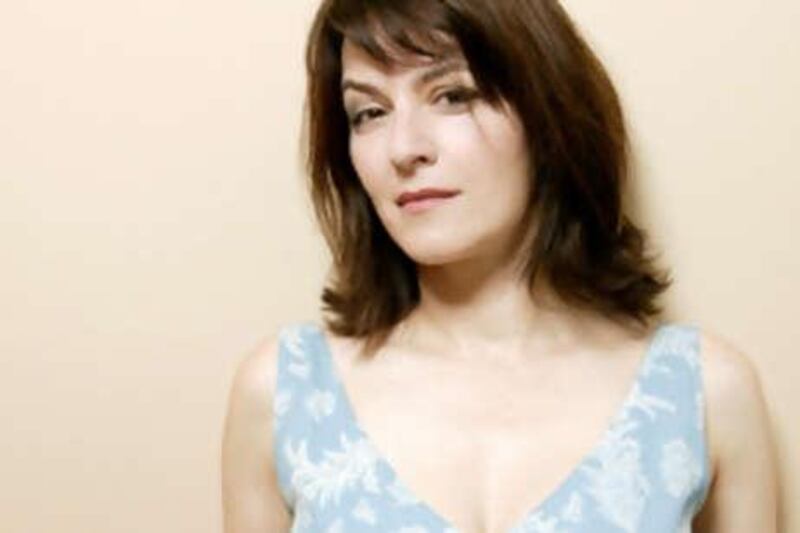The success of The Lives of the Others in 2006 finally saw Martina Gedeck move from the niche of admired German character actor to become an international face. So much so that when it came to casting The Baader Meinhof Complex, about the notorious German revolutionaries the Red Army Faction, the 47-year-old actress was the only name considered to play the notorious columnist Ulrike Meinhof. Sure enough, Gedeck dominates the film in the same way the former Konkret magazine journalist dominated the writings of the 1970 activists.
Meinhof's profile rose in the late 1960s but she was destined for international infamy when on May 14 1970 she helped spring Andreas Baader from jail, resulting in the birth of the Red Army Faction. A campaign of violence against the state followed, but it was only when Meinhof was arrested in July 1972 that the group became a cause célèbre. In a hotel in London, the actress says, "Until I started making the film, I didn't know much about her. It wasn't talked about much, it was not taught in school. I wasn't brought up in a political environment; in the 1970s the discussion on the threat of terrorism that was taking place ensured that my parents turned away. We moved to Berlin when I was a child and there were these huge demonstrations but my parents didn't want me to be a part of it, and even though I was attracted to the romanticism of the protests, I kept away. In any case, I was very shy."
Gedeck's interest in Meinhof began when the 30th anniversary of the so-called German Autumn of 1977 (when several RAF prisoners including Baader killed themselves) was met with a number of new documentaries and writings about the group. She says, "What I found fascinating was that at a time when women wouldn't speak politically at all, it was a world dominated by men, she would say things that no one would speak about in her column. In one way, she was very daring, but on the other side, she was soft, very sweet and very low key. She didn't want to be the centre of attention."
It wasn't just the complexity of the character that made Meinhof such a meaty role to play; her name still divides people. "I didn't want to judge any of them," Gedeck says. "But it's hard to put yourself in the place of this woman. I don't think I can do it, even if I had to in a way. I can show certain steps, but there are other things that I want audiences to ask themselves. Why did she do this and that? I want to pose the same questions she did in her life, in the film."
I ask Gedeck why she thought an intellectual would turn to group violence. "I think she got impatient," she says. "There was a deep wound felt by this generation. They were furious and felt betrayed by the older generation's involvement with Nazism. They were not supposed to speak up. They felt oppressed and when they spoke up, they hit back very hard. It was an inter-German conflict and had nothing to do with the big conflict that is happening now, the war on terror."
The film also sees Gedeck reunited on screen with Moritz Bleibtreu, who plays Baader. Last time they performed together they were an odd couple in Oskar Roehler's controversial adaptation of Michel Houellebecq's novel, Atomised. In the past, they've appeared on stage together, too. Gedeck argues it's their differences that make them such a dynamite screen pairing. "It's interesting to have this tension between two people," she says. "There is an energy between Moritz and me, and that is why it works. He has a secret to him as an actor: I don't know what he's up to. But, like in jazz, we can be very free together and that makes it exciting."
The excitement surrounding her own career continues to grow at an age when most actresses start to fret over there not being enough roles available. Since she appeared in Robert De Niro's The Good Shepherd, her career has taken on an international dimension and upcoming films include a biopic on Clara Schumann, the wife of the famous 19th century composer, and Vincenzo Terracciano's Italian production Che Bella Famiglia. No wonder Gedeck says that she's entered the most interesting phase of her career, so far.






